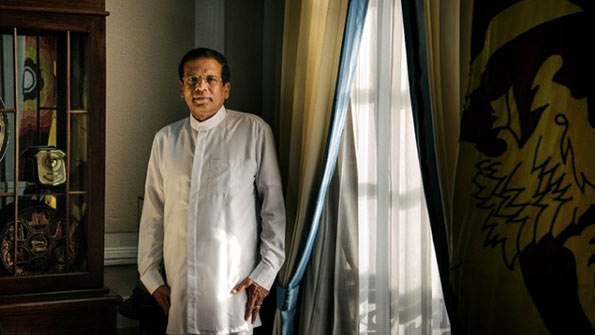Sri Lanka lifts state of emergency as ethnic tensions subside

Sri Lanka’s president announced he has lifted the nationwide state of emergency that was imposed after communal clashes resulted in the deaths of three people.
The latest series of violence began on March 4, after a Buddhist Sinhalese man was beaten to death by a group of Muslim men following a traffic accident in Teledeniya town in Kandy.
Several dozen people were wounded in the riots, in which mobs vandalised mosques and scores of Muslim homes and businesses.
“Upon assessing the public safety situation, I instructed to revoke the State of Emergency from midnight yesterday,” President Maithripala Sirisena said on Twitter.
The measure was imposed on March 6 after police failed to control the riots and the military was deployed. Internet access was also blocked across the country.
Police have arrested the suspected instigators of the riots.
The United Nations condemned the string of anti-Muslim attacks in Sri Lanka last week.
Under-Secretary-General for Political Affairs Jeffrey Feltman told the Sri Lankan government the people behind the violence should be brought to justice.
During his visit, Feltman “condemned the breakdown in law and order and the attacks against Muslims and their property”, a UN statement said.
The violence has raised fears of instability in Sri Lanka, a South Asian island nation still struggling to recover from nearly three decades of ethnic civil war.
(Aljazeera)

Latest Headlines in Sri Lanka
- UN pledges support for Sri Lanka’s industrial and SME development March 13, 2025
- Former Boossa Prison Superintendent shot dead in Akmeemana March 13, 2025
- Police search Sagala Ratnayaka’s residence amid hunt for IGP Deshabandu Tennakoon March 13, 2025
- Another Middeniya triple murder suspect arrested at BIA while fleeing March 13, 2025
- Court of Appeal to rule on IGP Tennakoon’s arrest warrant on March 17, 2025 March 12, 2025


